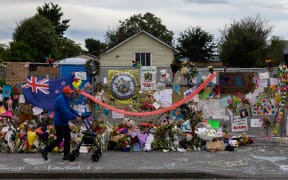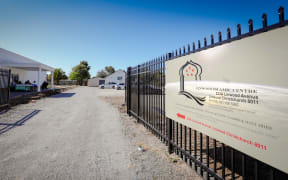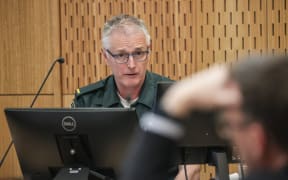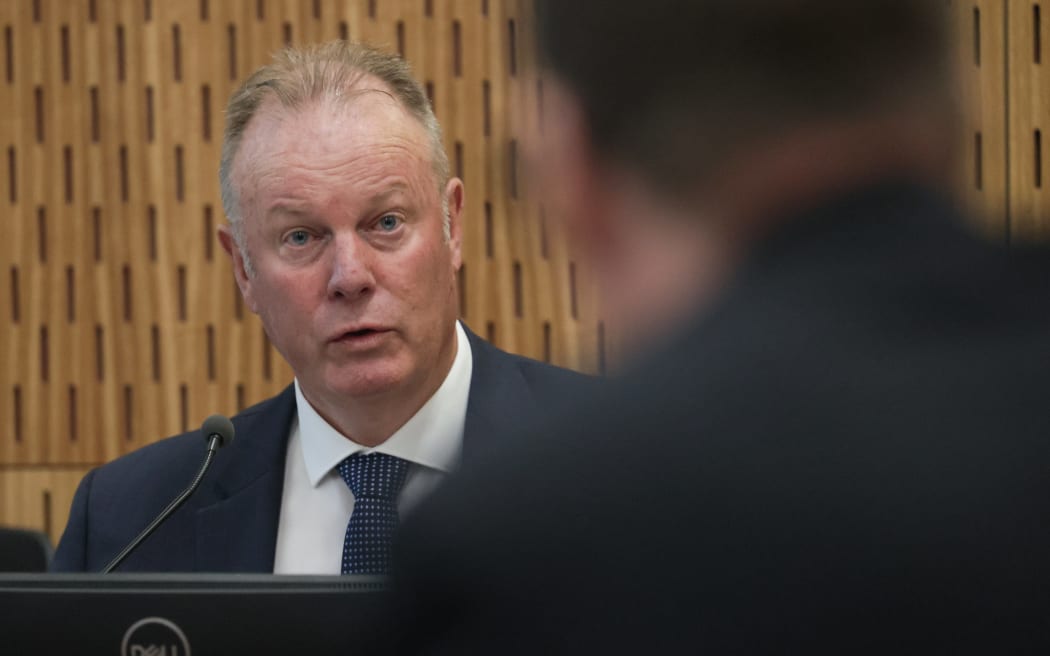
Former Superintendent John Price. Photo: CHRIS SKELTON/STUFF
A senior policeman has told the Christchurch mosque inquest that there is always a risk of attacks at New Zealand places of worship.
Superintendent John Price was district commander during the police response on 15 March 2019, when a gunman opened fire at Al Noor Mosque and Linwood Islamic Centre, ultimately claiming the lives of 51 people.
While there was no indication anyone was planning to target mosques, Price told the Coroners Court police had to be prepared for anything.
"There is always a risk with a lot of inter-faith communities. Any community within New Zealand that is not considered to be normal, they can become a potential target, so reassurance is always important," he said.
Price told lawyer Anne Toohey terrorism did cross his mind in the massacre's immediate aftermath, but it was not until sometime later that the motive for the attack became clear.
Price told the court he endorsed police, St John paramedics and Fire and Emergency staff working together on training scenarios.
"You can never do enough training and enough exercising, and I think it gives people confidence," he said.
"Muscle memory means that when you are faced with a situation and your adrenaline takes over, if you've practised it, you can then do it."
Price said it was important that emergency services used the same language and codes to avoid any confusion between agencies.
The court heard 540 Canterbury police staff took part in the response to the terror attack. A total of 159 vehicles were used, as well as 70 sets of firearms.
In the month after the attack, an additional 1019 New Zealand police staff were deployed to Christchurch as well as 57 police staff from Australia.
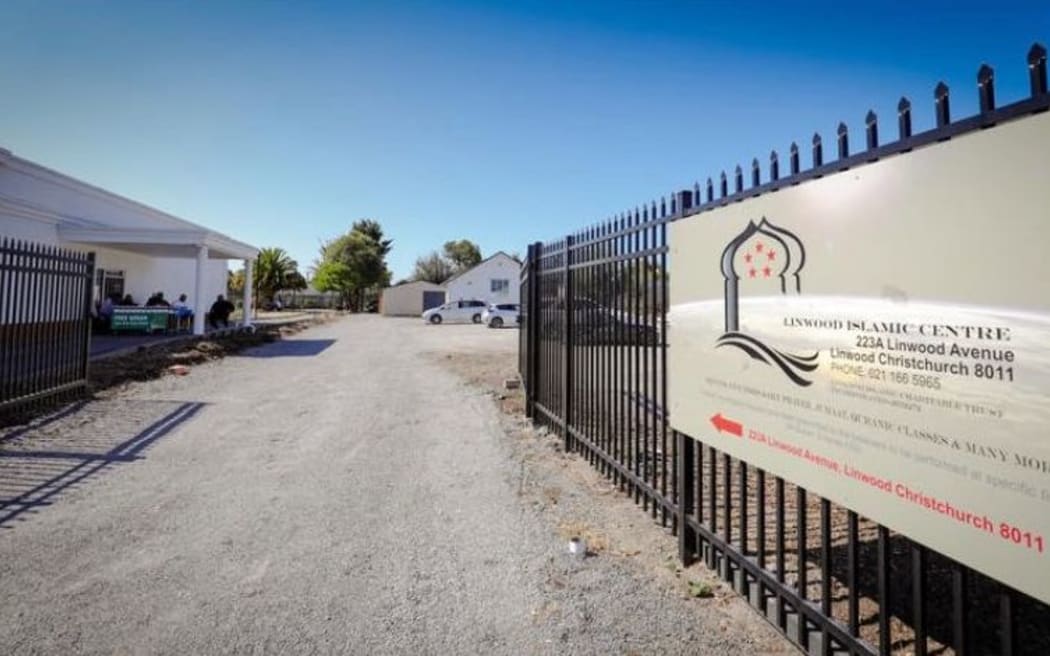
Christchurch's Linwood Islamic Centre (file image). Photo: RNZ / Eden Fusitu'a
Paramedic admits he should have done more to acquire information following terror attack
A specialist paramedic has again denied needing to be pushed to continue towards Linwood Islamic Centre after the terror attack.
But Dale Muller admits he should have tried harder to get more information on what they were facing.
On Monday, the inquest into the 51 worshippers murdered during the March 2019 shootings heard a St John Special Emergency Response Team (SERT) pulled over for more than six minutes while travelling to the Linwood Avenue mosque.
The terrorist shot and killed seven people at Linwood, after shooting dozens more at Al Noor Mosque, about seven kilometres away.
An Australian police officer in the vehicle with the SERT paramedics earlier told the Coroners Court he and a New Zealand Armed Offenders Squad member had to convince the paramedics to continue on to the scene of the second shooting.
Muller, one of the SERT paramedics, denied he needed convincing and said they pulled over to put on their protective equipment and get more information about the incident from the police radio.
He was also trying to find out if Linwood was where they should go, Muller said.
Earlier today, deputy chief Coroner Brigitte Windley questioned Muller further about the six-minute stop and asked if he tried to get on the radio or was simply listening in and hoping to hear the information he wanted.
Muller told her he could not recall attempting to get on the radio but said it was "extremely busy".
"There was a manhunt going on in the city," he said.
"To put it in context ... we are a small part of their big team.
"When they are active trying to get an offender, we are apprehensive about interrupting their extremely busy radio time to say, 'excuse me where would you like us to go?'."
But the coroner said it seemed as if Muller was doing himself a disservice.
"You're a valuable asset in these situations so I'm sure police would be more than happy for you to interrupt and ask, 'where would you like us?'."
Muller agreed.
In hindsight, it would have been "much better" if he had been more active on the radio to gather the information he wanted while they were still driving, he said.
He told Windley he was passive in his gathering of information - but that would suffice in any other situation.
Muller again denied to the court that he needed to be persuaded to continue to the Linwood Avenue mosque.
The inquest will examine the following 10 issues over six weeks:
- events of 15 March 2019 from the commencement of the attack until the terrorist's formal interview by police
- response times and entry processes of police and ambulance officers at each mosque
- triage and medical response at each mosque
- the steps that were taken to apprehend the offender
- the role of, and processes undertaken by, Christchurch Hospital in responding to the attack
- coordination between emergency services and first responders
- whether the terrorist had any direct assistance from any other person on 15 March 2019
- if raised by immediate family, and to the extent it can be ascertained, the final movements and time of death for each of the deceased
- the cause of death for each of the victims and whether any deaths could have been avoided
- whether Al Noor Mosque emergency exit door in the southeast corner of the main prayer room failed to function during the attack and, if so, why?
The inquest continues.
